CrossCurrents Library
Featured Collections
Topics
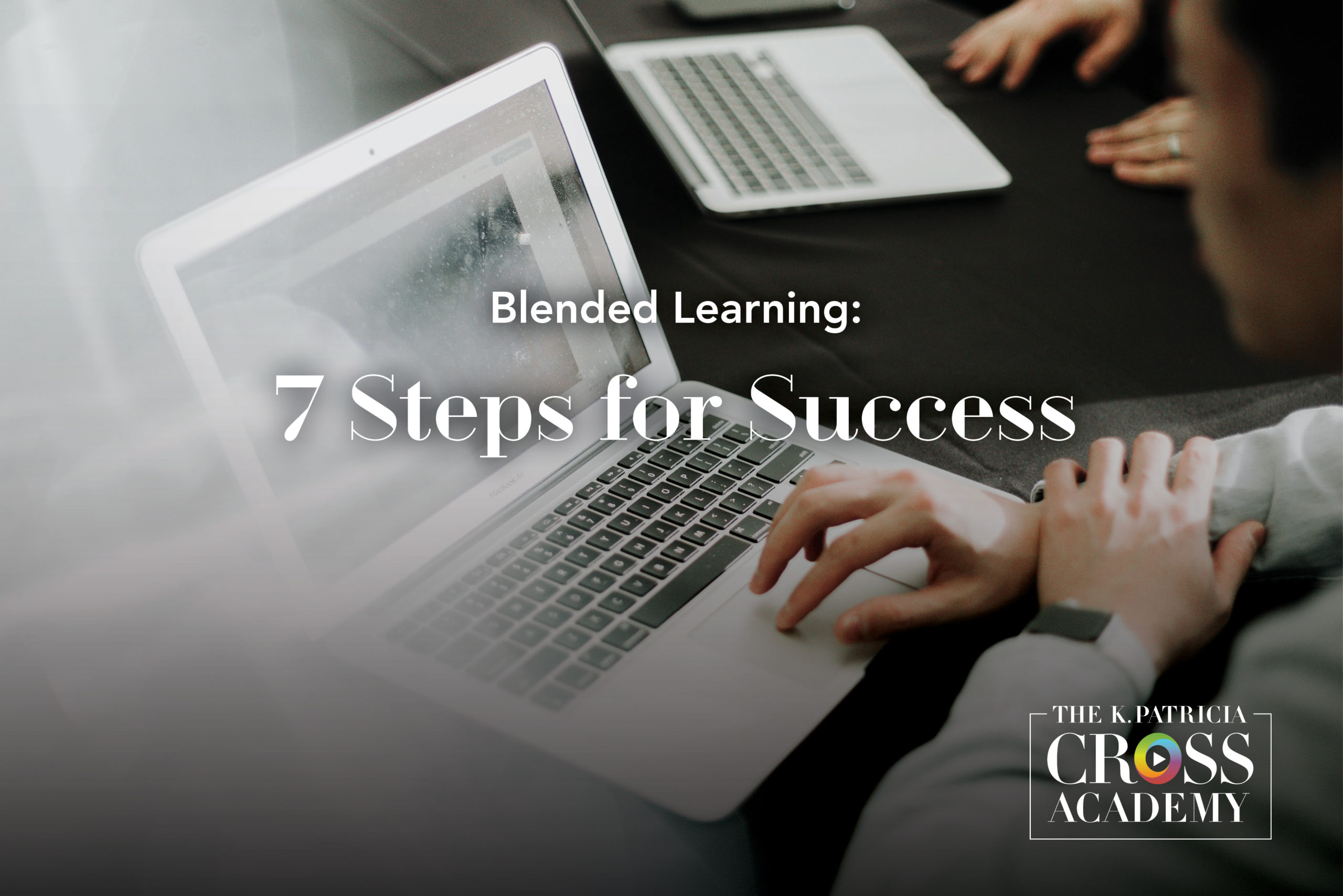
As colleges and universities look for new ways to improve both student learning and the student experience, blended courses are becoming increasingly common. A combination of onsite and online instruction, there is no single approach to blended learning. With any definition, the key to blended learning is the combination of onsite and online instruction. Educators in different geographic regions have
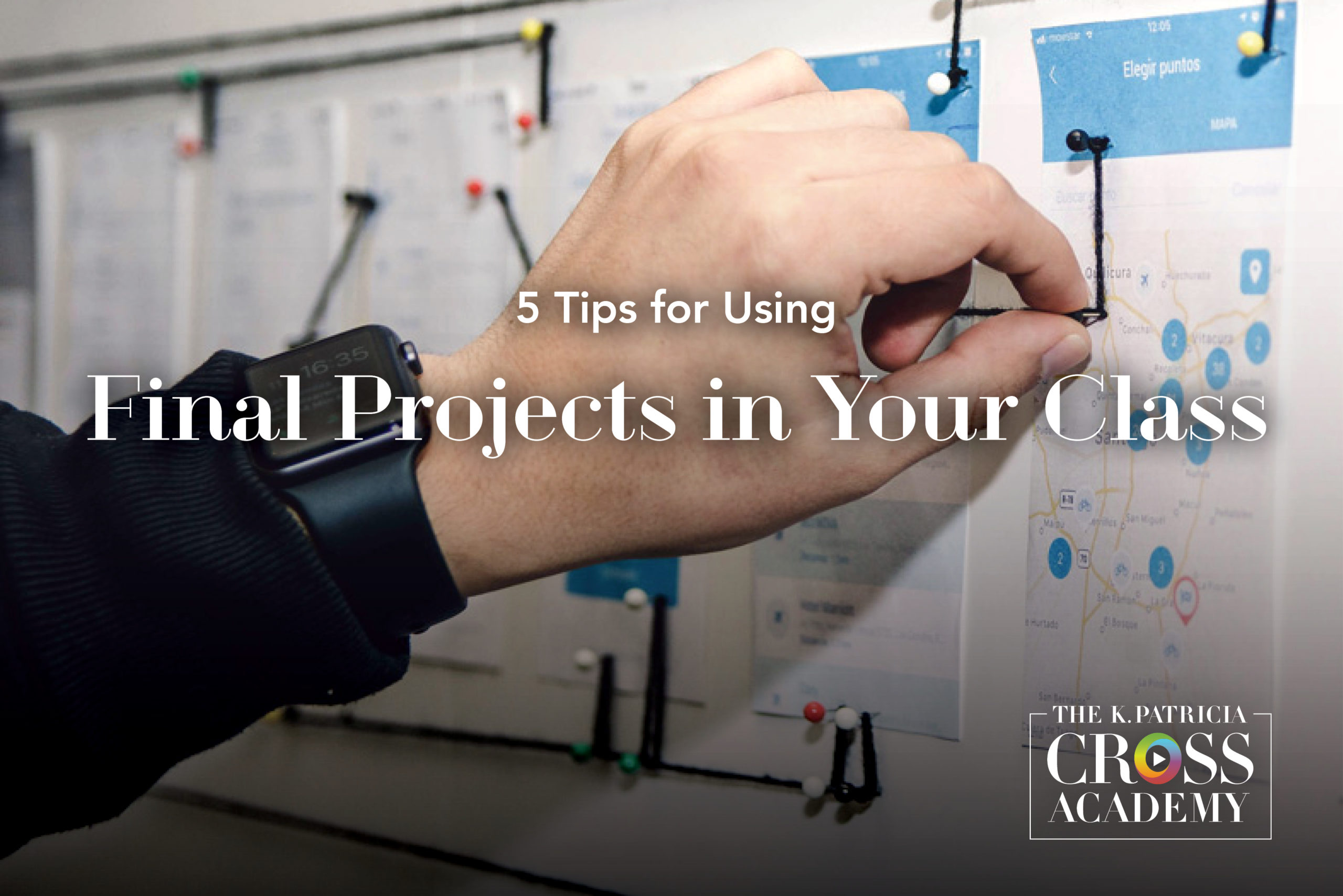
Months of lectures, activities, group projects, quizzes, readings, and more typically culminate in an end-of-term evaluation. It may be tempting to slip into the default “review for final exam” mode as a term comes to a close as tests can be worthwhile for student learning and retention (see 8 Benefits of Frequent Quizzing and Testing.) However, final projects can prove
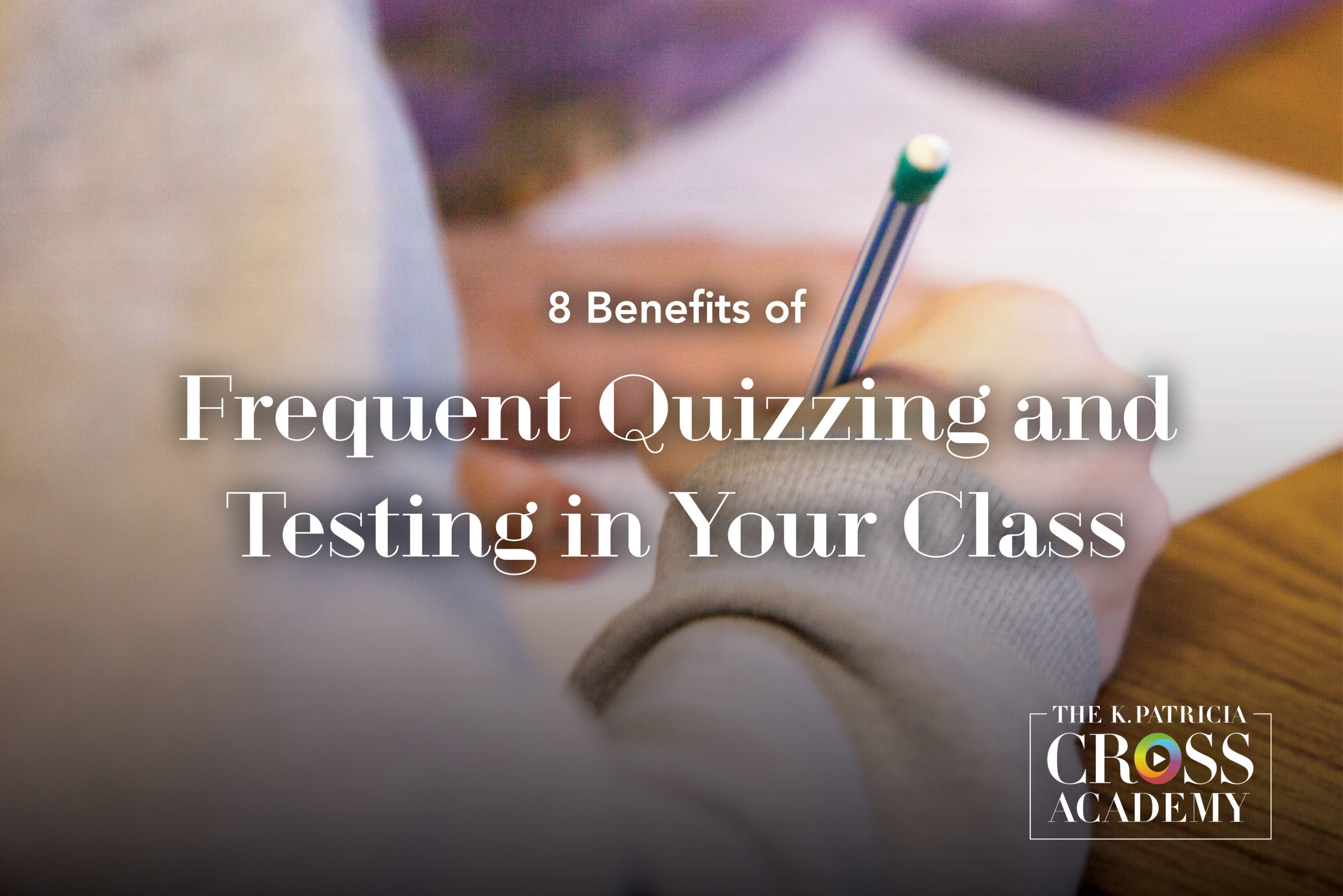
Few things strike fear in the hearts of students as much as tests, especially when knowing they will be used for summative assessment. Test anxiety aside, quizzes and tests can actually help students learn course content. Research demonstrates that the testing effect, which is sometimes called test-enhanced learning or retrieval practice, has a greater impact on student learning than simply
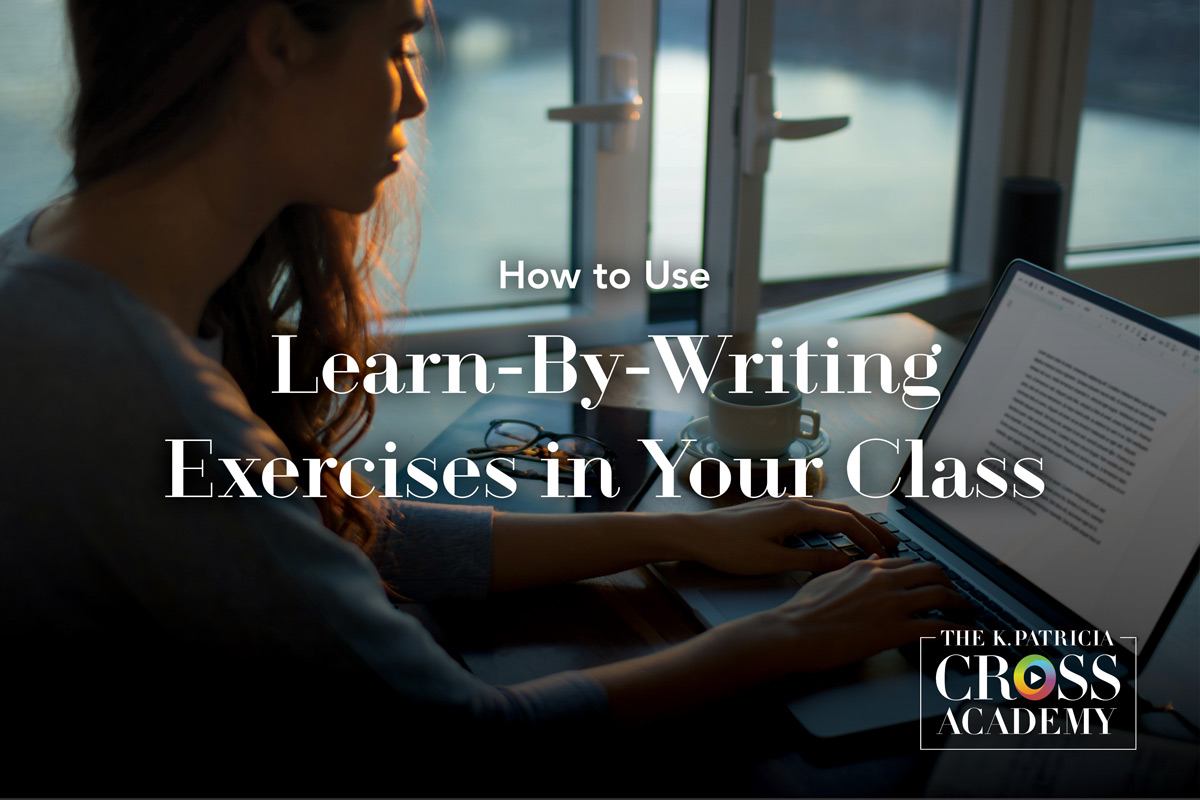
We write for many different reasons. Blogging, reporting, journaling, playwriting, scientific writing, opinion writing, recipe writing, songwriting, creative writing, writing for social media—the list of examples could go on and on. Even texting or emailing with friends and family is a near-constant form of writing we may take for granted. Writing is a form of expression, but it can also
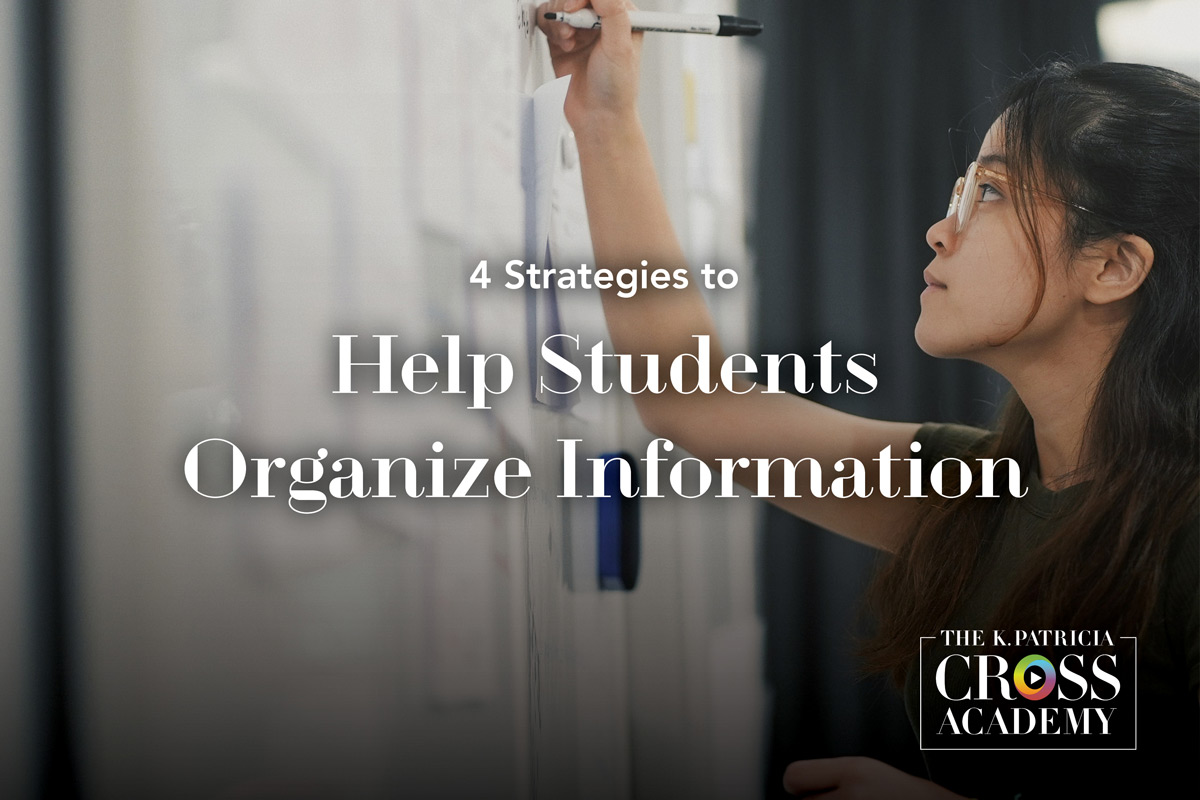
Humans are more likely to remember information that is patterned in a logical and familiar way. Furthermore, the act of organizing information is a helpful aid to human memory (Bailey & Pransky, 2014; Sprenger, 2002; Tileston, 2004). It is no surprise, then, that organizing information is a useful skill for students as well as an activity that can help to
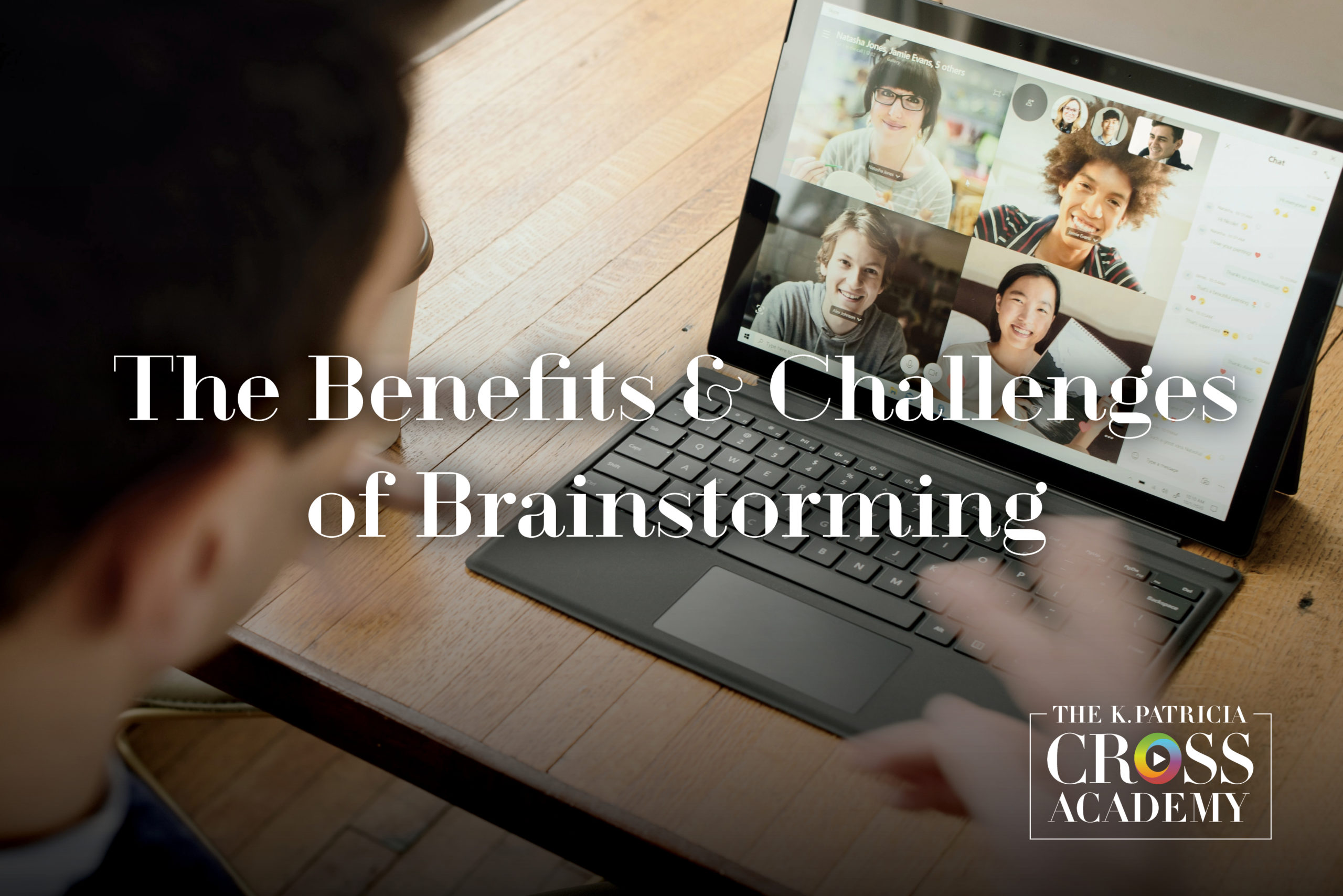
Brainstorming is a method of generating ideas and sharing knowledge to solve a problem. The defining characteristics of a good brainstorming session are when participants are encouraged to gather ideas spontaneously and to think without interruption. When done as a group, people typically collectively agree upon a solution after all the ideas are brought forth and discussed, but it can also
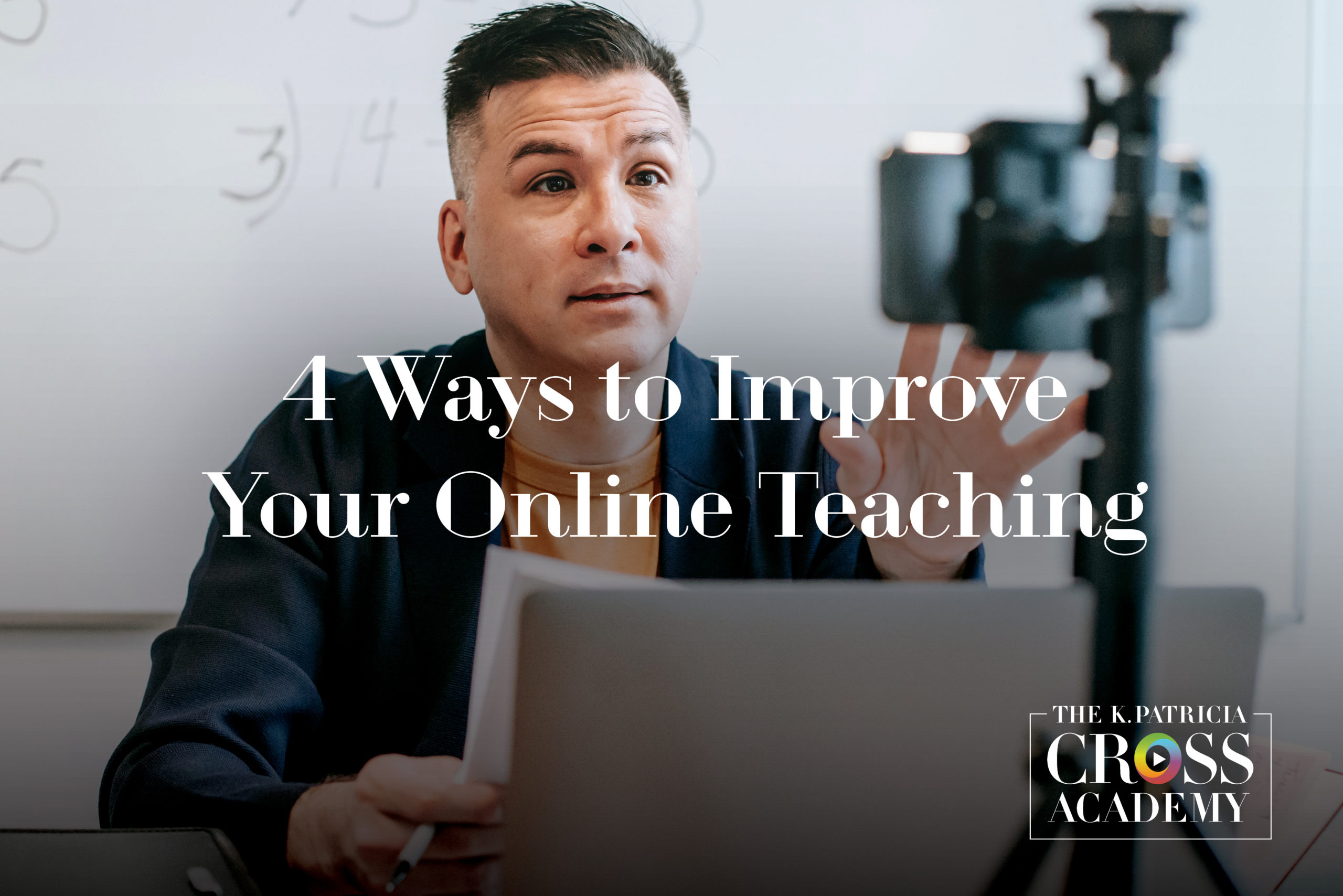
At the K. Patricia Cross Academy, our mission is to support faculty with easily accessible online teaching resources. As instruction is increasingly accomplished in an online environment, this edition of CrossCurrents is focused on highlighting some of the previous resources we’ve made available to instructors to aid in their development of successful, high-impact approaches to online teaching.
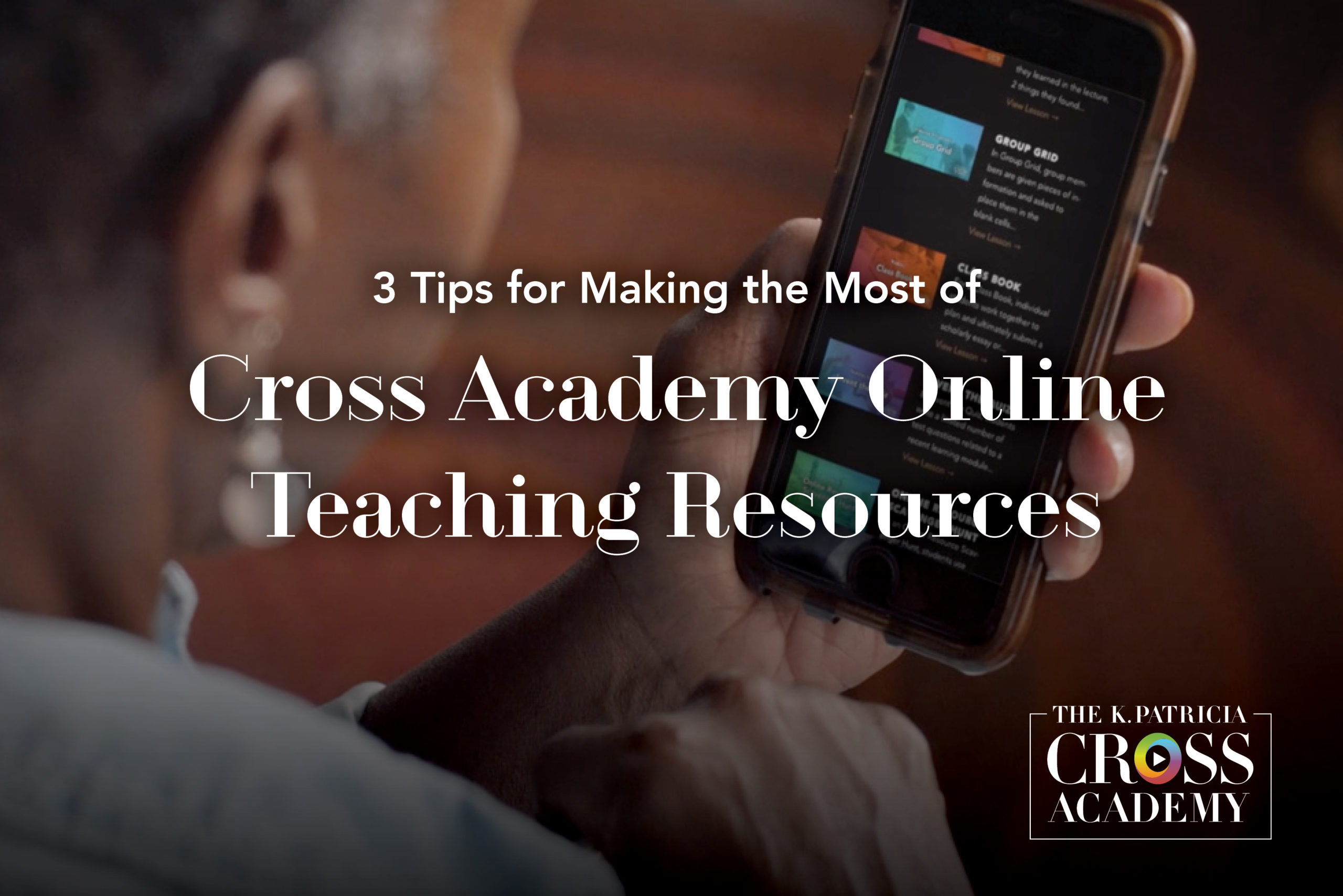
It’s been said that the best tool is the one you actually have with you, but how useful that tool is really comes down to whether or not you know best how to use it. Bearing that in mind, this post is aimed at helping you best utilize the online teaching resources provided by the K. Patricia Cross Academy. Video
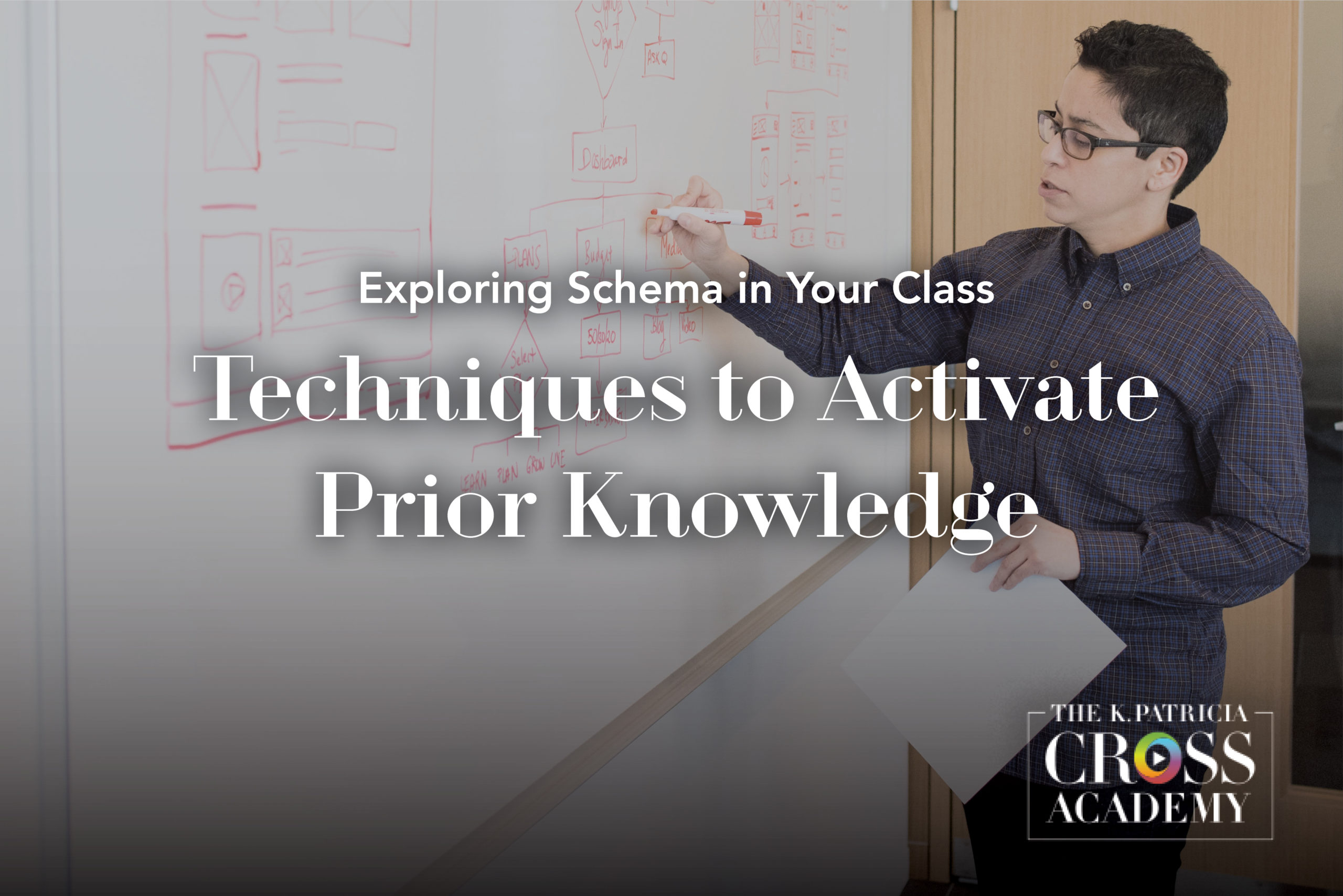
No student enters the classroom as a blank slate. Each has prior knowledge, also known as background knowledge, which informs their approaches to and understanding of new material and new experiences. Prior knowledge is the accumulation of everything a student has learned, through both formal and informal means. We can help students better understand new material by activating their prior
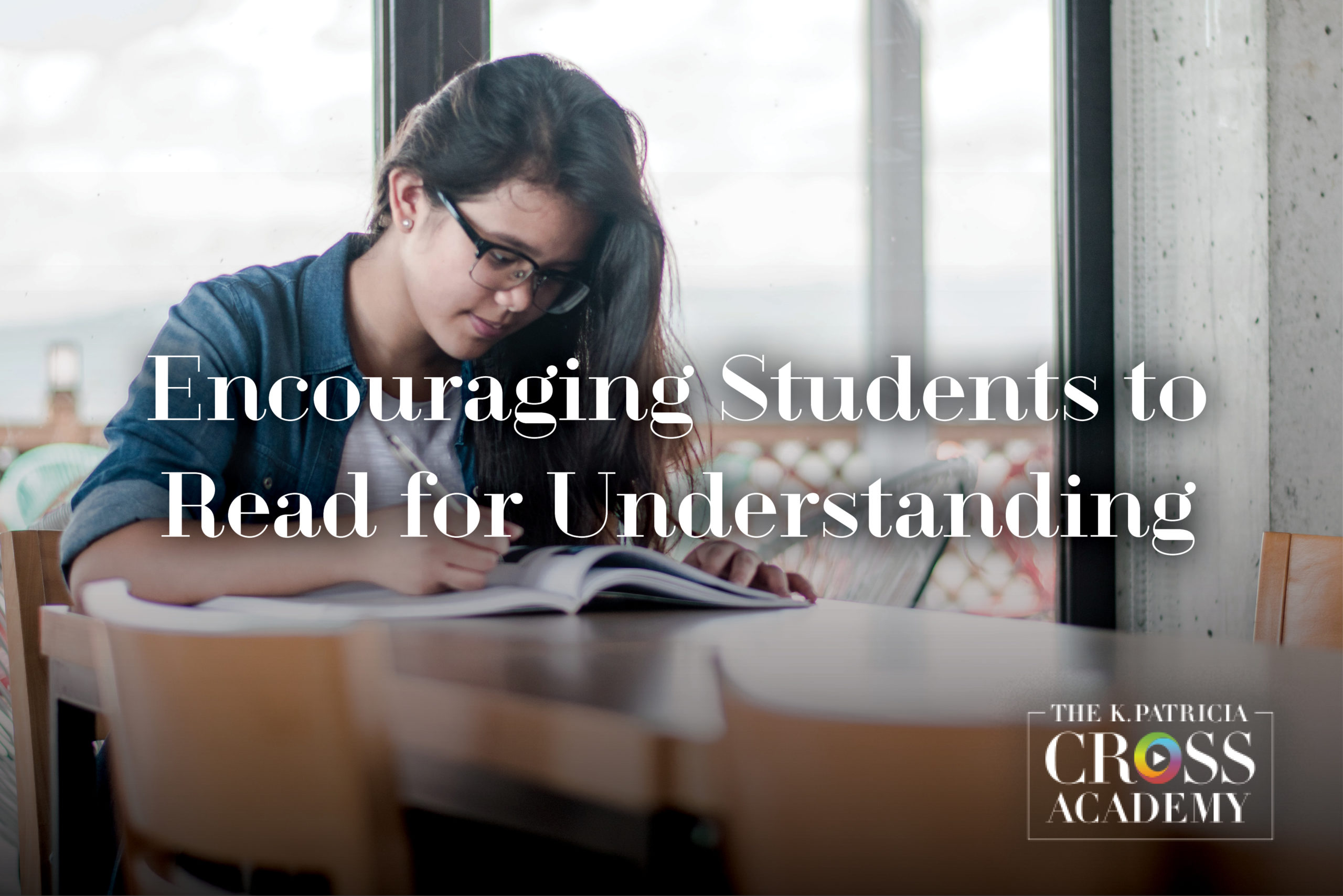
Reading is a fundamental skill that many of us take for granted, particularly in academia, yet it is essential to student success in and out of the classroom. However, as Thorndike wrote in 1917, reading can be as complex as solving a complex equation: Understanding a paragraph is like solving a problem in mathematics. It consists of selecting the right
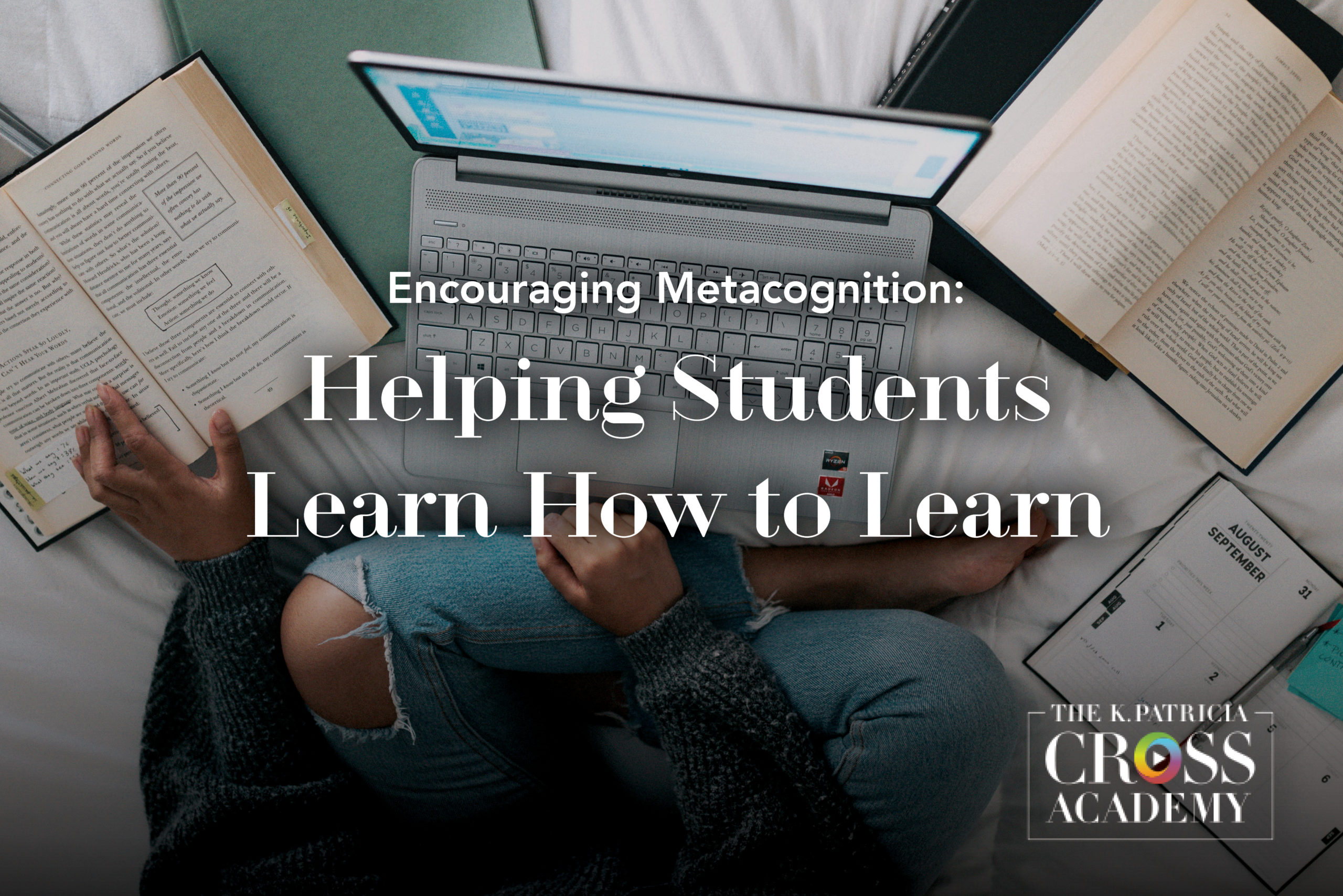
College and university students are regularly asked to learn a great deal of content and many skills in their courses, but the learning processes involved are rarely considered or managed on their own. For example, students can find it incredibly difficult to recognize learning gaps or misunderstandings when learning a new concept or process. They don’t always plan out their
